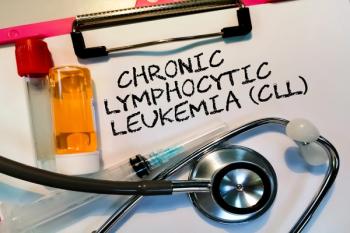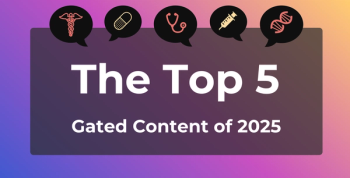
Real-world ONCare data show acalabrutinib lowers new-onset HTN, CV events, and discontinuations vs ibrutinib in R/R CLL/SLL.

Maggie is a senior editor for The American Journal of Managed Care® (AJMC®) and produces written, video, and podcast content covering several disease states. She joined AJMC® in 2019, and has been with AJMC®’s parent company, MJH Life Sciences®, since 2014, when she started as a copy editor.
She has a BA in English from Penn State University. You can connect with Maggie on LinkedIn.

Real-world ONCare data show acalabrutinib lowers new-onset HTN, CV events, and discontinuations vs ibrutinib in R/R CLL/SLL.

First announced in September 2025, the online platform is set to offer access to prescription medications at steep discounts, with potential savings in the millions.

The FTC first sued Express Scripts, CVS Caremark, and Optum in 2024, claiming anticompetitive and unfair rebating practices surrounding insulin.

Real-world inotuzumab ozogamicin boosts remission in relapsed/refractory B-cell ALL, supports transplant, and flags sinusoidal obstruction syndrome risk.

Policy strategist Kristi Martin discusses how the Orphan Drug Act reshapes rare disease treatment and drug-pricing challenges.

The Orphan Drug Act revolutionized rare disease treatment, yet rising costs and access issues challenge equitable health care solutions.

This new study reveals venetoclax and rituximab effectively treat chronic lymphocytic leukemia, showing high response rates and prolonged progression-free survival.

This approval brings the total indications for daratumumab and hyaluronidase to 5 in newly diagnosed disease and its 12th overall.

Ongoing phase 3 trials target improved therapies for hematologic malignancies, focusing on CLL, multiple myeloma, and pediatric leukemia outcomes.

The results of the phase 3 MajesTEC-9 trial showcase teclistamab's efficacy for patients with relapsed/refractory multiple myeloma, explained Roberto Mina, MD.

The FDA believes that data on MRD and complete response can expedite new drug delivery compared with long-term survival indicators.

The decline in primary care providers threatens Medicare FFS patients' access to new visits, highlighting urgent needs for policy reform and workforce solutions.

The CDC reveals current vaccination trends for COVID-19, flu, and RSV during the 2025-2026 respiratory virus season, highlighting public adoption rates.

Richter transformation with CNS involvement in CLL presents a poor prognosis, highlighting the need for tailored treatment strategies and further research.

Teclistamab was approved to treat relapsed/refractory multiple myeloma under the FDA’s accelerated approval pathway in October 2022.

New research presented at ASCO GI positions both agents as potent therapeutic options, with potential to redefine standard care for aggressive HER2-driven gastrointestinal cancers.

Bhavana (Tina) Bhatnagar, DO, discusses the transformative role of AI in enhancing patient care at West Virginia University Cancer Institute.

W. Kimryn Rathmell, MD, PhD, FASCO, champions the dyad model to enhance oncology care accessibility, bridging gaps between rural patients and clinical trials.

The complex disparities in pancreatic cancer survival trends across demographics and regions highlight urgent needs for targeted interventions.

Zanidatamab shows promise in extending survival for patients with HER2-positive biliary tract cancer, marking a significant breakthrough in treatment options.

Circulating tumor DNA shows promise in detecting esophageal cancer recurrence earlier than traditional methods, enhancing posttreatment surveillance.

Delays in breast cancer diagnosis and treatment highlight the need for improved human capital investment in health care systems, explains Adam Brufsky, MD, PhD.

Tobacco use significantly impacts gastric and esophageal cancer outcomes, highlighting the need for targeted public health strategies and smoking cessation efforts.

The trial is investigating zanidatamab with/without tislelizumab plus chemotherapy in HER2-positive advanced or metastatic gastroesophageal adenocarcinoma.

Patients with myasthenia gravis experience significantly higher rates of urinary incontinence and overactive bladder symptoms, impacting their quality of life.

Peter Voorhees, MD, emphasizes the importance of carefully determined early regimens for smoldering myeloma and involving patients in treatment decisions.

Economic stability and social factors significantly influence the risk of pediatric long COVID, highlighting the need for targeted health interventions.

GoodRx offers affordable access to oral semaglutide for weight loss through telemedicine, simplifying treatment options and pricing for consumers.

Danielle Roman, PharmD, BCOP, explains why a collaborative, team-based approach is essential to solving resource challenges in community cancer care.

Explore the evolving landscape of drug pricing, reproductive rights, and health policy in 2025, featuring insights on SC pembrolizumab and RFK Jr's hearings.

Published: December 9th 2025 | Updated: December 12th 2025

Published: December 9th 2022 | Updated:

Published: August 7th 2025 | Updated:

Published: May 22nd 2024 | Updated:

Published: October 16th 2023 | Updated:

Published: May 2nd 2025 | Updated:

259 Prospect Plains Rd, Bldg H
Cranbury, NJ 08512
© 2025 MJH Life Sciences®
All rights reserved.
